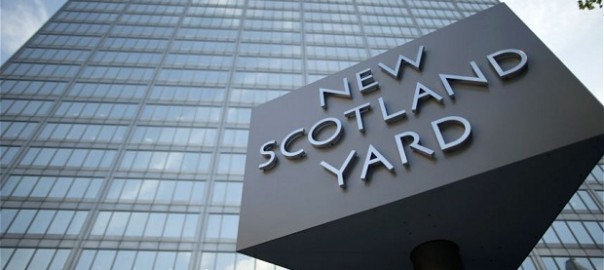I. Introduction
Internal corporations investigations are complex, high-stakes endeavors requiring careful planning and execution. Companies may face steep fines and penalties, risk of suspension or debarment for government contracts, negative publicity, and criminal and civil litigation. Wrongdoing by individual employees and executives may result in termination or, in some cases, criminal prosecution. Too often companies rush into an investigation, either conducting the investigation itself, investigating collateral issues, or hiring counsel without the necessary experience or expertise. While the desire to “get to the bottom” of an allegation may be intense, if mishandled, internal investigations can cause additional damage and pose ethical dilemmas for in-house lawyers managing or conducting investigations or their corporate clients or constituents.
In addition to the law and ethics governing corporate investigations, corporate politics often plays a large role, making investigations as much art as science. This article outlines foundational considerations for companies conducting internal investigations that are or may become subject to U.S. law because the conduct involved a U.S. business or subsidiary, or transactions touching the U.S. financial market.
II. When to conduct an internal investigation
Internal investigations arise as a result of whistleblower allegations, shareholder demands, external or internal audits, catastrophic or risky events, government subpoenas, informal inquires by government or self-regulatory organizations, or media reports. Companies should consider the nature and gravity of the allegations, their source, and whether allegations may be part of an ongoing concern or historic conduct within the company. In some circumstances, officers and directors may have a duty to investigate allegations, and failing to do so could lead to personal liability. In an era of increasing scrutiny of companies and corporate executives, many companies err on the side of caution and convene an investigation when responding to allegations or concerns.
In certain instances an investigation may be required. For example, if a government contractor is put on notice of potential fraud involving a government contract, there may be an affirmative obligation to investigate the allegations and report any malfeasance to the relevant agency. In other instances, an investigation, while not required, may be prudent. Such is the case when responding to an ongoing government investigation. A company may wish to conduct its own investigation to determine the relevant facts and plan its response to the government investigation (i.e., early settlement or litigation). Whether an internal investigation is prudent or actually mandated, a company is well advised to thoroughly analyze what is known about the allegations or inquiry, and carefully articulate the reasons for either conducting or not conducting its own investigation.
III. Conducting the Investigation
A. Defining the Scope
In convening an internal investigation, a company should carefully define the scope of the inquiry. An investigation that is too broad will result in undue expense and business disruption, while an overly narrow investigation may fail to uncover serious misconduct. The company should also determine who will conduct the investigation or supervise outside counsel. The company should evaluate cost, internal corporate politics, desire to maintain attorney-client privilege, and potential conflicts of interest when evaluating whether to engage outside counsel.The composition of the investigation team and scope of investigation should be memorialized in writing between counsel and client, and include: (1) the reason for convening the investigation and the objectives to be achieved; (2) the authority empowered to authorize the investigation (e.g., board of directors, audit committee, general counsel) and to whom the investigators should report; (3) the directive to preserve relevant data and materials; (4) a mandate to maintain confidentiality through the attorney-client privilege and work-product protection; (5) the authority to conduct employee interviews; and (6) whether the final report should be delivered in writing or during a meeting with company representatives.
B. Attorney-Client Privilege and Work-Product Protection
Maintaining the attorney-client privilege and confidentiality over investigation findings is of paramount concern. Under U.S. law, companies can strengthen claims of privilege by retaining outside counsel to conduct the investigation. Under U.S. common law, the attorney-client privilege and work product doctrine provide important protection for work product generated during the investigation, such as interview memoranda, legal analysis, and preliminary findings. Notably, the attorney-client privilege in Europe differs markedly for in-house counsel, who may not benefit from protections provided by the attorney-client privilege. Assuming attorney-client privilege applies, the investigators should agree on specific reporting procedures that clearly designate attorney-client communications and work-product-protected documents.
C. In-House Versus Outside Counsel
Companies should carefully consider several factors when deciding who should conduct an investigation. First, it is important that no personnel implicated or allegedly involved in potential wrongdoing be involved in the investigation, have access to information about the investigation, or manage investigation counsel. A properly defined scope will assist the company in determining employees who may need to be segregated. For example, if allegations implicate one or more in-house attorneys or members of the board, those individuals should be “walled off.” Investigators may wish to conduct initial “scoping” interviews to determine which key individuals in the company may be involved in the conduct in question. This scoping process will also facilitate document preservation and collection efforts.
Second, a company should consider the perceived independence of the investigators and investigative counsel. If the results of the investigation may be disclosed to government regulators, then retaining outside counsel may provide an element of independence that in-house counsel or employees may lack. The government may seek assurances that the investigation team was independent and not influenced by the board or company executives.
D. Data and Preservation
Immediately after convening an investigation, companies should preserve all information and documents that may be relevant to the issue under investigation. Because sources and type of data depend on a company’s technology infrastructure, investigators should interview information technology personnel to determine how data is created and stored by the company. The results of this interview will then determine the approach to data preservation, which may include document preservation notices, imaging of hard drives and personal devices, and suspension of automated data purging protocols.
After data and documents are preserved, investigators should assemble relevant materials for review in advance of employee interviews. Documents are normally reviewed by the investigation team, and “key document” sets identified for each relevant witness in advance of interviews.
E. Employee Interviews
Witness interviews are a key component to every investigation. Witnesses oftentimes are necessary to provide context and information unavailable or unapparent simply through document review. Unlike documents, however, witness’s testimony may be less reliable and exact. Investigators may decide to interview less involved witnesses first so that background or foundational facts are determined before interviewing more critical or key witnesses. However, if there are concerns about document spoliation or employee departures, the key employees may be interviewed first. .
Investigators should prepare an outline and set of key documents in advance of the interviews to ensure that relevant issues are addressed during the interview. Investigators should never interview a witness alone, and group interviews are discouraged. Investigators should also review the employment agreement and employee handbook in advance of an interview. In the event that an employee refuses to cooperate, there may be provisions in the employment agreement or handbook requiring cooperation as a term of employment.
Employee interviews involve balancing the need for information and cooperation with the needs of the business and the ethical requirements for U.S. lawyers. Approaching an interview like an interrogation will cause business disruption and fear among employees, and often prevent a more candid and reliable interview. Under U.S. law, attorneys are required to provide witnesses with an Upjohn warning, explaining that the attorney represents the company, not the employee, that while the interview is covered by the attorney-client privilege, that privilege belongs not to the employee but to the company, which may choose to share any or all of the information provided with third parties, including the government. It is important that employee interviews, including the Upjohn warning, are witnessed and properly memorialized.
F. Simultaneous Government Investigations
If an internal investigation occurs simultaneously with a government investigation (whether criminal or civil), it may be prudent for the investigators to learn more about the posture of the investigation and discuss avenues for cooperation. If the company wants to pursue settlement in the matter this early, proactive cooperation will be a key component of reducing penalties. In the event of a subpoena or search warrant the investigators should negotiate the scope of document and interview requests to ensure that they are narrowly tailored and avoid unnecessary business disruption. If documents and/or equipment are seized during a government search, company counsel should request that boxes be properly labeled, indexed, and photographed before anything leaves the company. This indexing process helps the company ensure that privileged materials remain properly marked and segregated.
If the government desires to interview company employees, the company can remind employees that they may have corporate counsel present during those interviews. In some instances, the government is required to request interviews through corporate counsel for management and executive personnel. Corporate counsel may wish to meet with certain employees in advance of these interviews to understand the scope of their knowledge and help them prepare for the government interview.
IV. Conducting investigations abroad
While international investigations are similar to domestic internal investigations, there are important differences. Navigating these differences often starts with gaining an understanding of the local culture and customs. Retaining competent local counsel to assist with the investigation may be helpful or, depending on the nature of the investigation, necessary to comply with local laws.
A. Language and Cultural Barriers
Conducting an investigation internationally is complicated by the corresponding language and cultural barriers. Even if an investigator is fluent in the language, they may not have the same grasp on colloquial phrases and subtle language nuances. Local counsel or a certified translator will help ensure that cultural cues and body language are properly understood. A certified translator also prevents the investigator from becoming a witness in his or her own case. Local counsel can also provide important counsel on local laws and customs that may arise in the course of the investigation, such as local law related to documents and data collection, employee labor and employment concerns, and foreign laws governing the activity under investigation.
B. Labor Law Considerations
Unlike labor laws in the United States, which some believe generally favor the employer (e.g., many U.S. states presume that employment relationships are “at will”), many other countries offer expansive protections to employees. Additionally, notwithstanding employment contracts and company policies requiring cooperation, some countries permit employees to refuse interviews or refuse to testify against a co-worker. Investigators should familiarize themselves with local labor laws to avoid violating these laws.
C. Data Privacy Considerations
In the United States, investigators may generally collect and use data stored on company computers and servers with few restrictions. In contrast, some countries restrict the collection, use, and disclosure of personal information, even if stored on company computers and servers. In many European countries, for example, before “processing” personal data (e.g., recording, storing, or retrieving), the user must satisfy several requirements. Investigators should be aware of the important differences in data protection laws in the jurisdictions in which they are conducting the investigation. This can be challenging when investigations involve businesses or transactions that touch multiple countries, or when the company is responding to a U.S. government subpoena for documents that may reside in other countries.
D. Do No Harm
The well-known Hippocratic Oath maxim, “Primun non nocere” (“Above all, do no harm”), is readily applicable to conducting international internal investigations. It is easy for investigators to fall into the role of “interrogator” and cause unnecessary business disruption and anxiety within the company. Investigators must understand their role and be mindful of the ongoing business needs of their clients. Investigations can and should be conducted with care and sensitivity to the employees and the needs of the business. This requires counsel that is adept at balancing the needs of the company, employees, government investigators, and a board of directors or audit committee.
V. Concluding the investigation
An investigation is complete when investigative counsel (1) are in a position to make reliable, memorialized findings; (2) can defend their conclusions to internal and external recipients of said findings; and (3) have a sufficient basis to provide informed legal counsel to their client, and assist the client in remediating any weaknesses, deficiencies, or improper conduct discovered. In light of the typically sensitive nature of an internal investigations and the fact record that is developed, the investigation’s factual findings and conclusions, and attendant legal counsel, should be conveyed orally to the client with support of a PowerPoint that remains in counsel’s possession. In some instances, a corporate client or counsel may prefer to tender a written report. In either case, care should also be taken to protect the investigative report, and preserve the investigation file, which includes key documents, and to determine the extent to which any document preservation holds must remain in place.
VI. Conclusion
A successful investigation requires counsel that understands not only the law but how to balance the numerous constituencies involved. Investigations are as much art as science, and companies should approach them with forethought and deliberation. While the consequences of a poorly handled investigation are clear, a proper investigation can help a company assess its risk and develop a sound strategy to minimize that risk.










